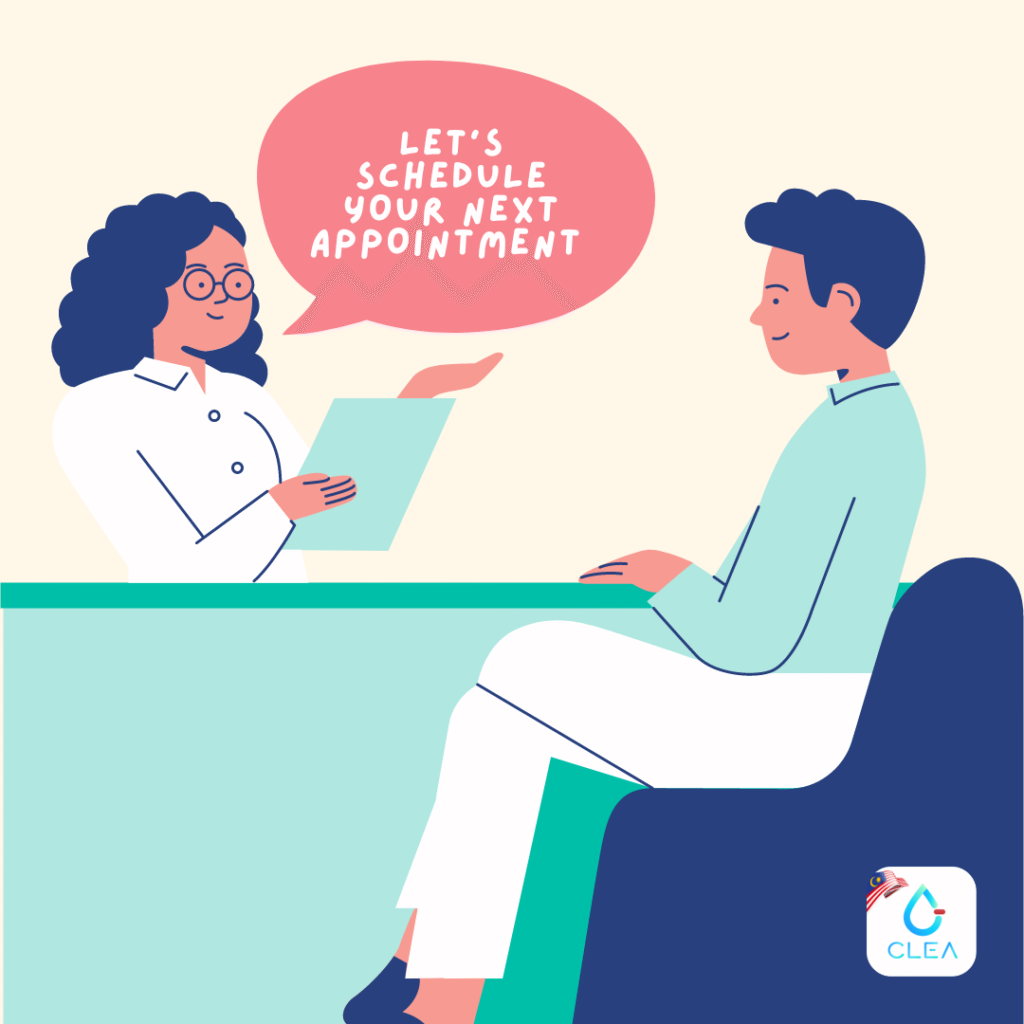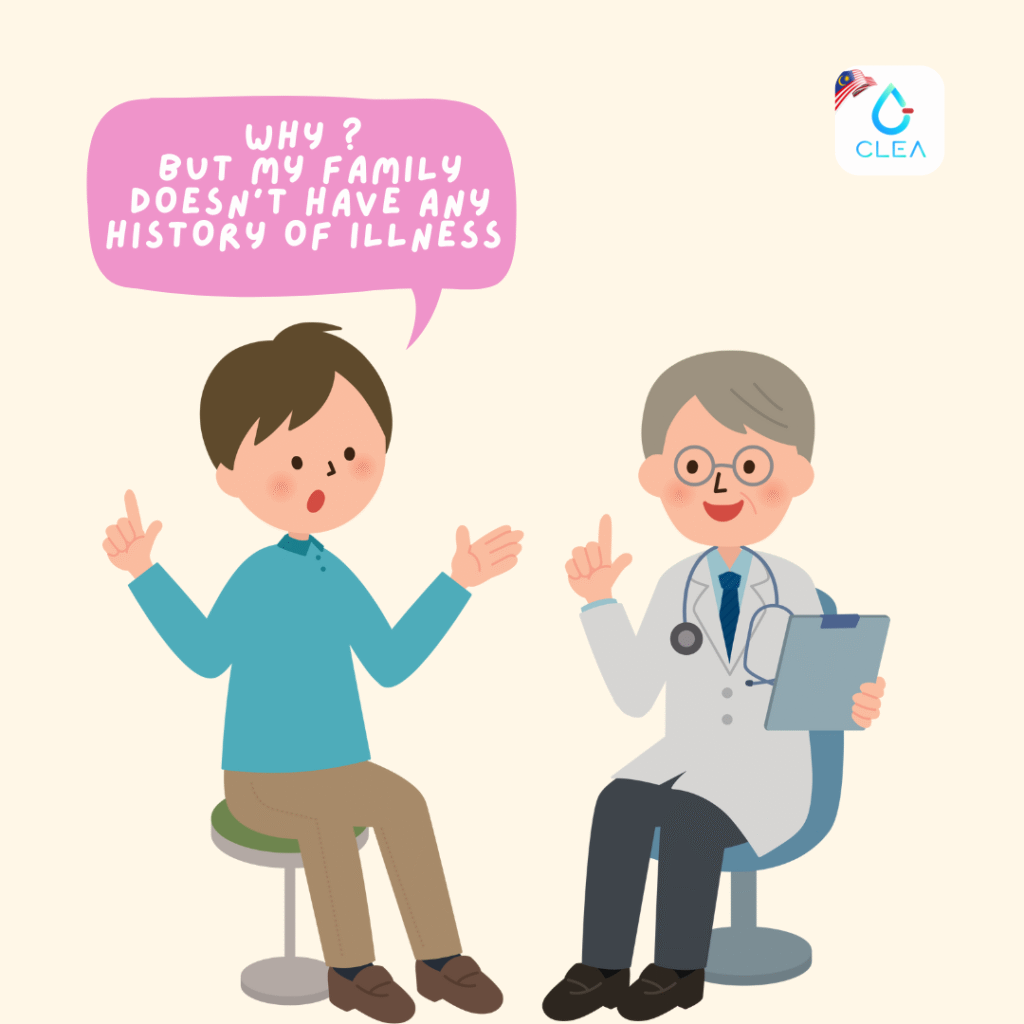
Health Screening Myth #1
[ I am still young and fine, I don’t need health screening ]
Although you’re still young, you should get screened as soon as possible if you have a family history of cancer or any other disease. Health screening uses physical exams, tests, and other processes to identify unnoticed problems in people who seem healthy. (Source: News in Health)
It aims to find potentially life threatening health issues early before they cause a problem. Early treatment of health conditions increases the odds of a good outcome. (Source: healthline & healthhub)
Health Screening Myth #2
[ Health screening should be done every 3 years once ]

If you’re at risk for certain health conditions due to family history or lifestyle exposures, ie smoking, you may choose to have screenings more regularly. (Source : News in Health) The frequency of your doctor’s recommended health screenings should be followed as they will based on your unique risk factors:-
(a) age,
(b) gender
(c) family history
(d) personal medical history
to evaluate you and provide personalised advice. (Source: healthplus)
Doctors will evaluate for regularly look at all the evidence about the balance of benefits and harms of different screening tests to determine who should be screened and how often.
Health Screening Myth #3
[ One health screening can detect everything. ]
Unfortunately, this is incorrect. There are many types of health screening and there is no one-size-fits-all screening package, and screening tests done should be tailored to every individual, taking into account their risk factors.
The tests used in health screening are the best available at this point of time, however, they are not foolproof, meaning the result may not be 100% accurate. Health screening might still fail to pick up certain diseases in some people. Don’t fret, this is very rare.
Moreover, some diseases can only be picked up by specific tests which are invasive or come with certain risks and side effects therefore, not routinely offered. Doctors will only recommended for these type of tests to be done when the risks outweigh the benefits, such as when a patient experiences signs and symptoms of the disease. (Source: healthplus)
Men and women usually screen for :-
(a) High blood pressure
(b) obesity (based on BMI)
(c) tabacco
(d) alcohol & drug misuse
(e) depression
(f) HIV screening (usually for high risk individuals from 15-65 years old)
(g) Hepatitis C (for individuals born between 1945 to 1965)
(h) Type 2 diabetes (for individuals with family history)
(i) Colorectal cancer (from age 50 onwards)
(j) Lung cancer using low dose CT scan (for individuals age 55-80 or has been smoking for the past 15 years)
Additional test for women include:-
(a) Breast Cancer Mammogram (For women age 50 to 74)
(b) Pap smear for Cervical Cancer (For women age 21 to 65)
(c) High cholesterol screening (Age 45 onwards)
(d) Osteoporosis Screening (Age 65 onwards)
Additional test for men include:-
(a) Abdominal aortic aneurysms screening (Smokers from age 65 to 75)
(b) Prostate Exam (if advised by doctor, starting at the age of 50)
(c) High cholesterol exam ( For age 35 onwards) (Source: healthline)
Health Screening Myth #4
[ Health Screening can be uncomfortable and painful ]

People always assume health screening will be uncomfortable or painful, invasive or involve unnecessary risks. Health screening is not an unpleasant experience, trust me. Other thansome procedures like blood collection via venipuncture, health screening are usually painless. Tests are usually not invasive, and carry minimal or no risks. The doctor or nurse will explain the procedure to you, including the potential risks (if any), before doing any physical examination or test. (Source: healthplus)
If there is a technique during the health screening that you are uncomfortable with, you can discuss it with your doctor.You can feel more at ease and reduce anxiety by working with knowledgeable, compassionate personnel in a welcoming clinic setting.
Health Screening Myth #5
[ I don’t need a health screening because my family does not have a history of medical illness. ]

First and foremost, let’s all be grateful that we have healthy medical histories. But not all diseases are hereditary or have a family history. Our surroundings and the way we live contributes to potential diseases developing in our bodies. This means that simply when you know someone who has problems as a result of their surroundings or lifestyle, it does not necessarily suggest that you are fine.
Most of us suffer from environmental problems like air and water pollution. We are all susceptible to the development of diseases when bad dietary practises, varied alcohol intakes, or cigarette use are taken into account.
Therefore, even with a clean family history of medical illness, other factors like age (older patients tend to develop more problems such as glaucoma), lifestyle (smokers and those who lead a sedentary lifestyle) and any present health complaints is the reason why you should get your health screening done.
Useful Links :
https://cleadoc.com
Reference :
https://www.healthline.com/health/how-often-should-you-get-routine-checkups-at-the-doctor#whats-included
https://www.parkwayshenton.com/healthplus/article/health-screening-myths-debunked
https://newsinhealth.nih.gov/2017/03/screen-or-not-screen
https://www.healthhub.sg/live-healthy/403/abcs_of_health_screening
https://www.linkedin.com/pulse/have-you-been-putting-off-your-health-checks-due-few-myths-george/


